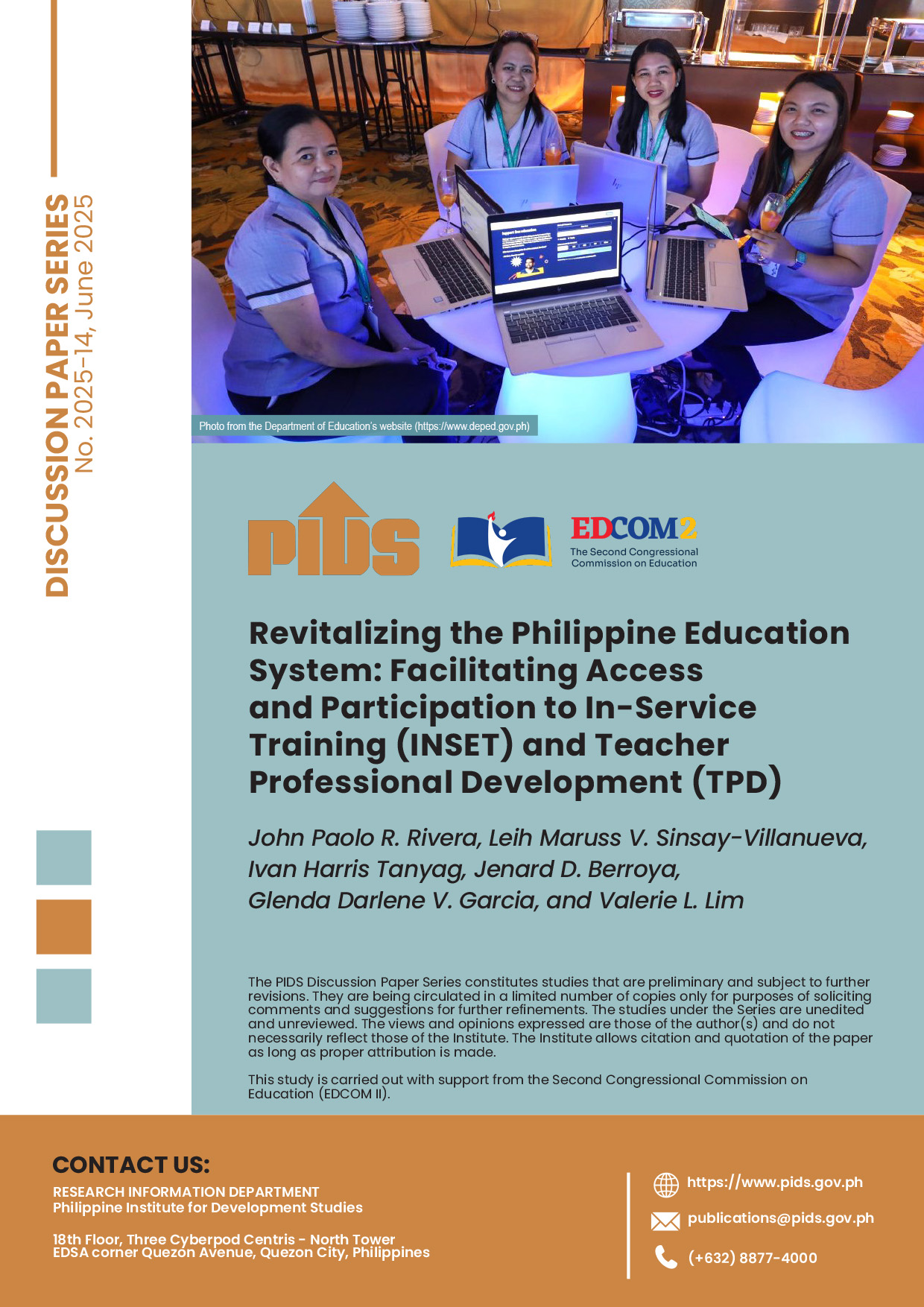The country stands to suffer economic losses from P276.3 billion to P2.5 trillion due to the dreaded Covid-19 pandemic.
In a study titled “Projected Diseases Transmission, Health System Requirements, and Macroeconomic Impacts of the Coronavirus Disease 2019 (Covid-19) in the Philippines,” researchers from the Philippine Institute for Development Studies (PIDS) said biggest-hit sectors would include manufacturing (P82.1 billion to P855.2 billion), wholesale and retail trade (P93.2 billion to P724.8 billion) transport, storage and communication due to decline in tourism (P11.7 billion to P124.3 billion) and other services (P41.5 billion to P356.9 billion).
The PIDS study showed that “projections from combined disease transmission, micro-simulation and macroeconomic models suggest that the country’s gross value added may decline between P123.5 billion to P2.5 trillion.”
Should the national government opt to extend the Luzon-wide enhanced community quarantine (ECQ) for another 30 days, “it may potentially cost the Philippine economy at least P150 billion due to the possible declines in household consumption as workers remain unemployed.”
Citing the distribution of household incomes in 2015, “about three (3) in every five (5) Filipinos have limited capacity to subsist without additional support if community quarantines are extended beyond one month.”
The PIDS study said the contraction of economies worldwide as a a result of the pandemic would also limit the capacity of overseas Filipino workers to send remittances to their families.
The Covid-19 pandemic brought a significant decline in crude oil prices in the first quarter of the year as countries imposed extreme measures including lockdowns and cross-border closures to halt the spread of the disease.
The study also pointed to the dwindling stock market, considered an indication of a diminishing market confidence. The study warned that “if this current trend continues, it may directly impact the country’s prospects for export growth in the near term.”
It also warned of the negative effects of disruptions in both local and global supply chains, particularly “in the delivery of final goods for consumption and the production of other goods and services that rely on intermediate inputs.”
The study recommended to the government a “gradual and calibrated transition to a risk-based strategy that combines relaxation of economic restriction while controlling the spread of the virus.”
It called for the deployment of a massive safety net program to ensure that households have access to food and other basic necessities, adding that “interventions must not only be confined to the poor, displaced workers and other at-risk population but also to firms, specifically the micro-, small- and medium-sized enterprises.”
The study recommended the promotion of economic activity through the strict implementation of safety protocols by tapping businesses in the government’s intervention efforts vs Covid-19, with garments factories producing PPEs, and distilleries shifting to alcohol production, among others.
Other businesses may need to be developed, especially in research, digital platform deliveries, manufacturing, and others to supply goods and services that cannot be readily sourced from the international market, the study said.
It also called on government to allow partial operations of public transport to ease the movement of essential economic transactions. Commuters ought to follow strict guidelines on social distancing.
The government might “opt to directly hire drivers or operators in a cash-for-work program to effectively control public transportation.”
The study was made by PIDS senior research fellow Michael Abrigo, research specialist Jhanna Uy, research fellow Valerie Gilbert Ulep and PIDS consultants Net Jason Haw and Kris Francisco-Abrigo.
In a study titled “Projected Diseases Transmission, Health System Requirements, and Macroeconomic Impacts of the Coronavirus Disease 2019 (Covid-19) in the Philippines,” researchers from the Philippine Institute for Development Studies (PIDS) said biggest-hit sectors would include manufacturing (P82.1 billion to P855.2 billion), wholesale and retail trade (P93.2 billion to P724.8 billion) transport, storage and communication due to decline in tourism (P11.7 billion to P124.3 billion) and other services (P41.5 billion to P356.9 billion).
The PIDS study showed that “projections from combined disease transmission, micro-simulation and macroeconomic models suggest that the country’s gross value added may decline between P123.5 billion to P2.5 trillion.”
Should the national government opt to extend the Luzon-wide enhanced community quarantine (ECQ) for another 30 days, “it may potentially cost the Philippine economy at least P150 billion due to the possible declines in household consumption as workers remain unemployed.”
Citing the distribution of household incomes in 2015, “about three (3) in every five (5) Filipinos have limited capacity to subsist without additional support if community quarantines are extended beyond one month.”
The PIDS study said the contraction of economies worldwide as a a result of the pandemic would also limit the capacity of overseas Filipino workers to send remittances to their families.
The Covid-19 pandemic brought a significant decline in crude oil prices in the first quarter of the year as countries imposed extreme measures including lockdowns and cross-border closures to halt the spread of the disease.
The study also pointed to the dwindling stock market, considered an indication of a diminishing market confidence. The study warned that “if this current trend continues, it may directly impact the country’s prospects for export growth in the near term.”
It also warned of the negative effects of disruptions in both local and global supply chains, particularly “in the delivery of final goods for consumption and the production of other goods and services that rely on intermediate inputs.”
The study recommended to the government a “gradual and calibrated transition to a risk-based strategy that combines relaxation of economic restriction while controlling the spread of the virus.”
It called for the deployment of a massive safety net program to ensure that households have access to food and other basic necessities, adding that “interventions must not only be confined to the poor, displaced workers and other at-risk population but also to firms, specifically the micro-, small- and medium-sized enterprises.”
The study recommended the promotion of economic activity through the strict implementation of safety protocols by tapping businesses in the government’s intervention efforts vs Covid-19, with garments factories producing PPEs, and distilleries shifting to alcohol production, among others.
Other businesses may need to be developed, especially in research, digital platform deliveries, manufacturing, and others to supply goods and services that cannot be readily sourced from the international market, the study said.
It also called on government to allow partial operations of public transport to ease the movement of essential economic transactions. Commuters ought to follow strict guidelines on social distancing.
The government might “opt to directly hire drivers or operators in a cash-for-work program to effectively control public transportation.”
The study was made by PIDS senior research fellow Michael Abrigo, research specialist Jhanna Uy, research fellow Valerie Gilbert Ulep and PIDS consultants Net Jason Haw and Kris Francisco-Abrigo.












